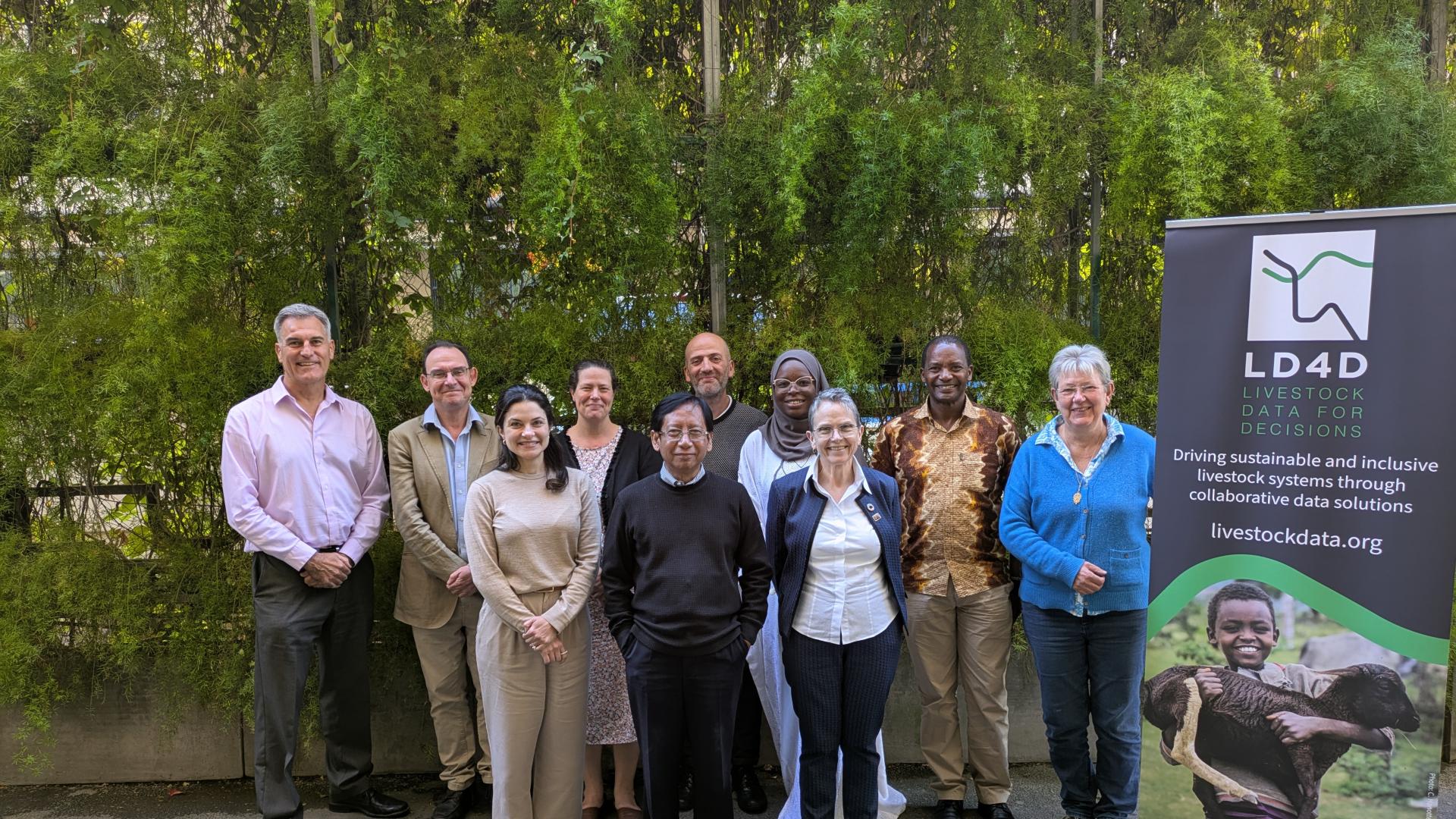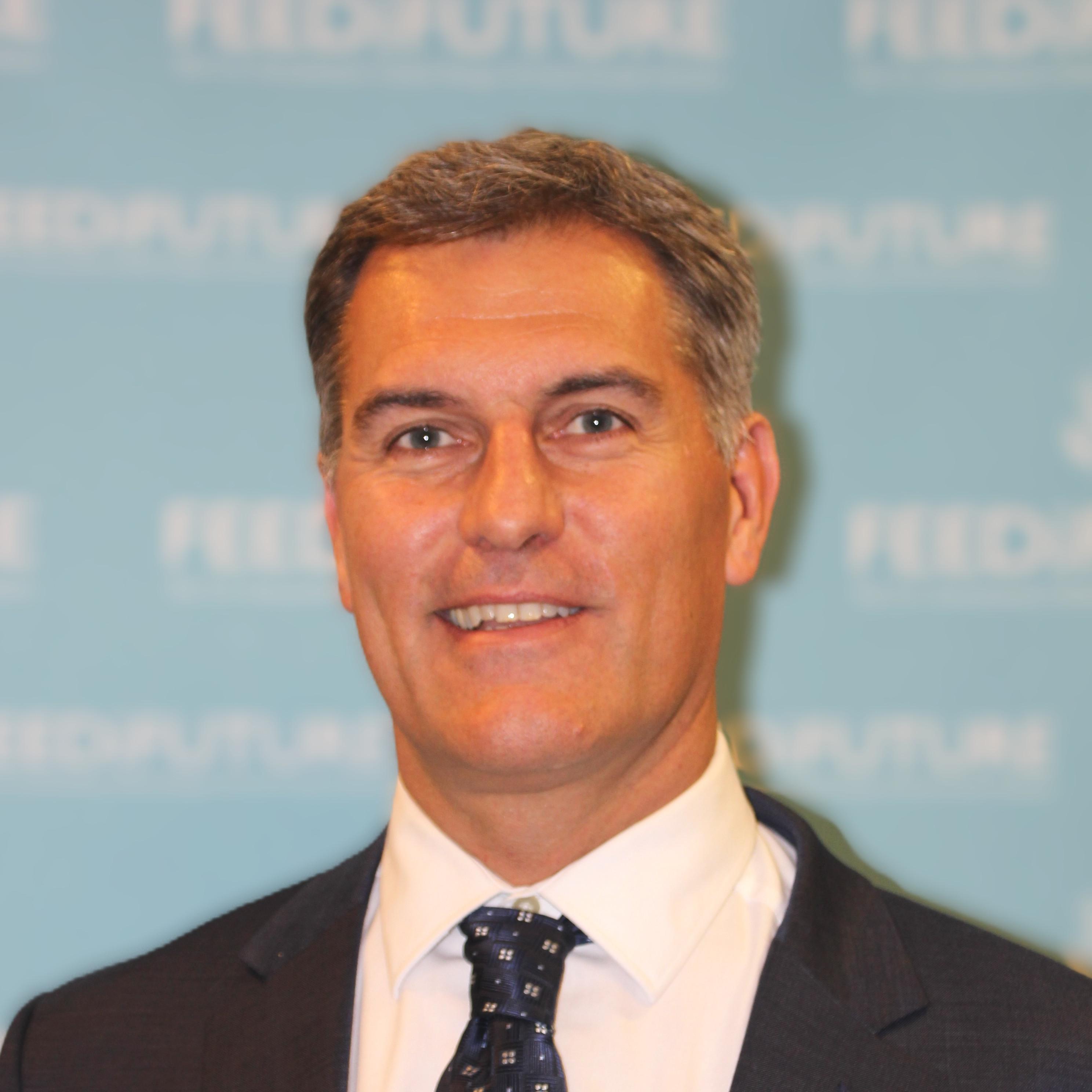LD4D Steering Committee

The Steering Committee supports LD4D’s overarching goal by identifying and supporting improvements to livestock data. They help advance solutions in this area by providing direction on LD4D working groups and other activities, and exchange knowledge on this topic with the wider community.
The purpose of the LD4D Steering Committee is to:
- Advise on the scientific direction of LD4D
- Prioritise topics for consideration and implementation
- Advise on LD4D’s knowledge exchange and communication strategy
- Identify and promote opportunities to move towards a sustainable structure
- Review the progress of LD4D’s working groups and other activities
LD4D Steering Committee Members
-

Latifah Abdulkarim
Position Program Manager, Sahel ConsultingDr. Latifah Abdulkarim is a veterinarian and development professional with deep expertise in sustainable livestock systems. She leads design and implementation of programs that aim to improve livelihood and production of women across in the poultry value chain. She also leads advocacy campaigns across Nigeria to promote responsible antimicrobial use, reaching over 20,000 farmers through a grassroots approach. Dr. Abdulkarim designs gender-responsive and climate-smart livestock programs that incorporate sustainability into farm-level practices. She is also a Board Member, Alliance for Sustainable Livestock.
-

Andrew Bisson
Position LD4D Steering Committee ChairAndrew Bisson is a senior livestock expert with global experience in program development. He began in smallholder veterinary practice and holds an MSc in Tropical Veterinary Medicine and Epidemiology. He has worked across Africa, Asia, and the Middle East on pastoral and mixed systems. His interests include community-based animal health, One Health, zoonotic disease control, market systems, and resilience programming.
-

Laura Cramer
Position Scientist - Policy Engagement for Climate Action, International Livestock Research InstituteLaura Cramer is a Scientist working on policy engagement for climate action. She conducts research on science-policy interfaces as part of the Livestock, Climate and Environment program. She also leads the Accelerating Impacts of CGIAR Climate Research for Africa (AICCRA) theme on Policies and Priorities for Climate Smart Agriculture. Her interests are in food systems policy, evidence-informed decision making and advocacy around livestock as part of climate solutions.
-

Dahlanuddin
Position Professor of Ruminant Nutrition, University of MataramDahlanuddin is a Professor of Ruminant Nutrition at the Faculty of Animal Science University of Mataram, Indonesia. He is also an Adjunct Professor at the School of Environment and Rural Science University of New England, Australia and at School of Agriculture and Environment, Massey University, New Zealand. He has been a key researcher in a series of international collaborative research and development on smallholder beef cattle in Indonesia since 2001, and in Timor Leste since 2011. Dr. Dahlanuddin has strong connections with government, private sectors and international organisations, and has been actively involved in M&E of development projects.
-

Fernanda Ferreira
Position Director for Agriculture Methane, Clean Air Task ForceFernanda Ferreira is Director for Agriculture Methane at CATF, focusing on reducing methane from agriculture through technology and management strategies. With 15+ years' experience in sustainable livestock systems across the U.S. and Latin America, she supports global policy efforts. Fernanda holds a DVM from UFMG (Brazil), an MPH from UC Davis, and a PhD in Animal Science from the University of Florida.
-

Leah Arabella Germer
Position Agriculture Specialist, World BankLeah Arabella Germer is an Agriculture Specialist in the Agriculture and Food Global Practice of the World Bank. She specialises in the area of livestock and climate change and focuses on countries in Latin America and Africa. Previously Leah worked as a fellow at the U.S. Environmental Protection Agency (EPA) in Washington, DC and as a research consultant at the Tropical Agriculture Research and Higher Education Center (CATIE) in Costa Rica. She has a master’s degree in Environmental Policy and is currently a PhD candidate with the Animal Production Systems Group at Wageningen University.
-

David Harvey
Position Technical Director, Land O’Lakes Venture 37David “Dai” Harvey has over 30 years’ experience working in the Global South, both in primary production and market development. In his current role, Dai is providing technical, and management oversight for all types of agricultural projects across East and Southern Africa and the Caucuses. Dai is passionate about creating opportunities for improving access for consumers to safe nutritious food and endeavouring to ensure farmers capture more of the end value. He is currently serving his second term as Vice President for Africa on World Jersey Cattle Bureau.
-

Bernard Nyakundi Kimoro
Position Ministry of Agriculture and Livestock Development, KenyaBernard Nyakundi Kimoro is Head of Climate Change and Livestock Sustainability at Kenya’s State Department for Livestock Development. He leads policies to enhance adaptive capacity and sustainability in livestock systems. A member of the UNFCCC negotiation team, he has 20+ years’ experience in livestock production, rural development, GHG modelling, MRV, and value chain development.
-

Shannon Mesenhowski
Position Senior Program Officer, Gates FoundationShannon Mesenhowski is a Senior Program Officer with the Livestock Team at the Gates Foundation. Shannon is responsible for the Foundation's animal systems body of work, focusing on policy, data, veterinary service, advocacy, and collaboration as tools for optimising livestock’s role in development. Shannon has a Doctorate of Veterinary Medicine (D.V.M.) and Master of Public Health (M.P.H.) degrees from the University of Minnesota, and has worked in private clinical veterinary practice doing both mixed and small animal work.
-

Christie Peacock
Position Founder & Executive Chairman, Sidai Africa Ltd.Christie Peacock is the Founder and Executive Chairman of Sidai Africa Ltd., an innovative social business in Kenya offering quality livestock and crop products and services to over 400,000 farmers through a network of retail outlets. Sidai is a Kenyan company with start-up financing from the Bill & Melinda Gates Foundation, that has attracted increasingly commercial investment to support its growth in recent years.
-

Ugo Pica-Ciamarra
Position Policy Lead, Global Health Security Program, Food and Agriculture Organisation of the United NationsUgo Pica-Ciamarra is an agricultural economist with over 20 years of experience in evidence-based policy and planning in the livestock sector in developing countries. He is the Policy Lead of the Global Health Security Program in the Animal Production and Health Division of the Food and Agriculture Organization (FAO) of the United Nations. His areas of expertise are livestock statistics, livestock data collection systems, and livestock sector policies and institutions. He holds a PhD in Development Economics, an MA in in Agricultural Economics, and a MS in Economics and Finance.
-

Shirley Tarawali
Position Assistant Director General, International Livestock Research InstituteShirley Tarawali is Assistant Director General at International Livestock Research Institute (ILRI, Kenya) a CGIAR centre. Shirley’s portfolio includes representation, engagement within ILRI and beyond to support sustainable livestock contributions to the wider development agenda. Shirley has over 35 years’ experience implementing and leading livestock research for development, including in senior leadership, and has authored or contributed to over 100 publications. She holds a PhD in Plant Science from the University of London.
-

Paolo Tizzani
Position Scientist, World Organisation for Animal HealthPaolo Tizzani currently works at the World Animal Health Information and Analysis Department, World Organisation for Animal Health (WOAH). Paolo does research in Veterinary Medicine with a special focus on diseases in Wildlife. His most recent publication is 'Sarcoptic mange in wild ruminants in Spain: solving the epidemiological enigma using microsatellite markers'. Paolo belongs to the European College of Zoological Medicine - Wildlife Population Health Diplomate.
